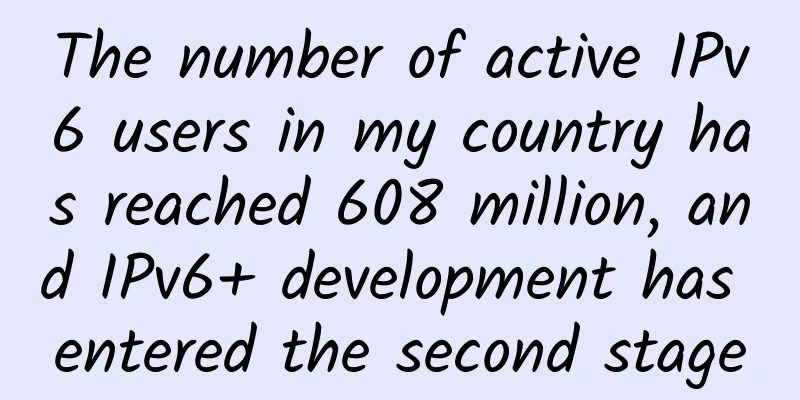Telecom operators tighten cloud sovereignty and no longer want to be the big guys behind the scenes

|
"Carrier cloud" represented by China Telecom and China Mobile is becoming a new variable that is being overlooked in the digital market. On September 6, the Beijing Securities Regulatory Bureau disclosed that CITIC Securities and CICC submitted a summary report on the guidance work for China Mobile's initial public offering of RMB common stock (A shares) and listing on the Shanghai Stock Exchange Main Board. The information shows that China Mobile has basically met the requirements or regulations of the China Securities Regulatory Commission and the Shanghai Stock Exchange for proposed listed companies and has the basic conditions for this issuance and listing. This means that China Mobile will officially sprint for the A-share listing. In August this year, China Telecom, which had been preparing for the listing for more than four months, successfully returned to the A-share market. The important reason for this round of return to A-shares is that China Telecom hopes to promote the implementation of the "cloud-to-digital transformation" strategy, and China Mobile hopes to become an "information service technology company." Simply put, the growth space of traditional communications business is limited and is even declining. The two companies are expanding the "second curve" outside of the communications business, that is, providing cloud and digital services to the outside world. This requires a huge 5G infrastructure, cloud infrastructure, and accelerated product research and development. Each direction requires a lot of funds, and returning to A-shares can obtain funds to support strategic transformation. The cloud and digital business of operators is currently growing rapidly, accounting for an increasing share of total revenue. At this time, strengthening the service capabilities of the cloud market is not only a judgment of the trend of the external market, but also a higher requirement for their own capabilities. China Telecom, China Mobile and China Unicom, the three major Chinese telecom operators, have been committed to breaking away from the fate of being a pipeline-based operator for many years, just like the mainstream operators around the world. They have tried different things, but their goals are the same. For the three major Chinese telecom operators, cloud computing is an important tool for operators to enter the B-end market, break away from the traditional "pipeline + traffic" model, and transform from pipeline providers to service providers. However, since China Telecom launched the Tianyi Cloud development strategy in 2009, the role of operators in the cloud computing market seems to be more like a pipeline. Over the years, cloud vendors such as Alibaba Cloud and Tencent Cloud have spent huge amounts of money every year to rent IDC computer rooms and network bandwidth from telecom operators, virtualizing physical servers into "clouds" and then subletting them to other companies. Cloud vendors' customers are mainly concentrated in the Internet market, while operator clouds are mainly aimed at the government and enterprise markets. The two sides do not have much overlap and each takes what it needs. After 2019, the competitive and cooperative relationship between the two sides has intensified. First, the pace of digitalization of government and enterprises is accelerating. Telecom operators lack technology in the government and enterprise market, and cloud vendors lack customers and qualifications. Both parties need to work together on projects; second, the digital transformation of telecom operators themselves requires technical services from cloud vendors, and cloud vendors need telecom operators' IDC (data center) rooms and network bandwidth; third, the trend of "cloud-network integration" technology is accelerating, and telecom operators and cloud vendors need closer technical cooperation. This year, the cloud market environment has undergone a qualitative change. For example, state-owned cloud qualifications have become more important, and cloud market competition has evolved from enclosure to entry into respective fields. These, in turn, are beneficial to telecom operators. At present, operators and cloud giants are dependent on each other in terms of customers, resources, and technology, and the mutual dependence between the two sides is increasing. However, a variable that deserves great attention is happening - but in this process, telecom operators are also gaining more and more initiative in the digital market. The urgent need for cloud transformationFor operators, cloud transformation is urgent. On the one hand, there is pressure from the business level, and on the other hand, there is a strategic need. The main business of China Telecom and China Mobile is "connection + networking". Mobile communications and broadband fixed networks for China's 1.4 billion people account for the main revenue of the two companies. Mobile communications and broadband fixed networks have high and stable income, but almost everyone in China today is on mobile communications and fixed networks, paying a fixed fee every month, which means this is a stock market with limited room for growth. Data from the Ministry of Industry and Information Technology show that the number of mobile phone users nationwide increased by 149 million in 2018, 35.25 million in 2019, and decreased by 7.28 million in 2020, showing negative growth. The number of broadband users nationwide increased by 58.84 million in 2018, 41.90 million in 2019, and 34.27 million in 2020, with the scale of net increase continuing to decline. Judging from the operating conditions of telecom operators themselves, their original communications businesses, especially personal and family communications businesses, are facing growth difficulties. In the first half of 2021, China Telecom's mobile communications and broadband fixed-line revenues from 2020 to 2021 were even lower than those in 2019. China Mobile's personal communications business declined year by year from 2018 to 2020. China Unicom's main mobile business revenue once declined in 2019, and after resuming growth in 2020, it was still lower than in 2018, and the fixed-line broadband business growth was almost stagnant. In contrast, the proportion of industrial digital service business of the three major operators has increased year by year. In the first half of 2021, China Telecom's industrial digitalization revenue accounted for 23.13% of total revenue, China Mobile's government business was 18.62%, and China Unicom's industrial Internet revenue was 15.5%. Judging from the slowdown in the growth of mobile communications and broadband fixed networks and the gradual growth of industrial digital services, it is reasonable for China Telecom and China Mobile to urgently carry out cloud and digital transformation. So, what is the strength of the three major telecom operators in the digital market? We can compare them from the perspective of public cloud services and digital integrated services. In the current mainstream public cloud market share, operator cloud has a low share and is even being squeezed by leading cloud vendors. China Telecom Tianyi Cloud originally ranked third in the public cloud market in 2019, but in 2020 Huawei Cloud squeezed into the top three from others, and Tianyi Cloud ranked fourth. Data released by market research firm IDC in July this year showed that in the domestic public cloud (IaaS+PaaS) market, Alibaba Cloud ranked first with a market share of 40%, Tencent Cloud and Huawei Cloud ranked second and third respectively, with a market share of 11% each. Tianyi Cloud's market share was 8%. China Mobile was not on the list in the IDC report, but according to the caliber of other research institutions, China Mobile still has a place. However, a telecom operator told Caixin that the cloud business of telecom operators is underestimated. The statistical calibers of different institutions vary greatly. Some institutions only count "IaaS+PaaS" revenue, and public cloud vendors will have an advantage. Some institutions count the exclusive cloud part, and telecom operators have an advantage at this time. In any case, telecom operators are becoming more proactive in the cloud market. China Unicom is rarely seen in mainstream research organizations due to its small size and low market share. However, China Unicom has a close relationship with Alibaba Cloud. After the "mixed reform" in 2017, Alibaba and other Internet companies became shareholders of China Unicom. Wo Cloud, a subsidiary of Unicom, even directly received technical support from Alibaba Cloud. In the government cloud market, China Telecom has a market share of 8%, ranking fourth, and China Mobile is also not on the list. Huawei, Inspur, and Tsinghua Unigroup occupy the top three, accounting for 32%, 26%, and 13% respectively. The advantages of Inspur and Tsinghua Unigroup lie in their state-owned backgrounds and their traditional advantages in the government cloud market. However, we should also look at the overall picture when looking at the details. Purchases in the government and enterprise market are usually large orders of tens of millions or even hundreds of millions of yuan, and the scope of purchase includes public cloud, hybrid cloud, private cloud, as well as other software and hardware digital services such as middle platform, applications, ICT, etc. Alibaba Cloud, Huawei, China Telecom, and China Mobile are often direct participants in the same project. Telecom operators do not have an advantage in public cloud business, but if we calculate the revenue from DICT integrated business (telecom operators refer to cloud, IDC, ICT, and IOT as DICT business, and DICT and private network business constitute the digital sector. DICT business has a high degree of overlap with Alibaba Cloud and Huawei's enterprise business and is highly comparable.), China Telecom, China Mobile, and China Unicom are not inferior. China Telecom's 2021 interim results show that revenue in the first half of the year was 219.2 billion yuan, a year-on-year increase of 13.1%. Net profit was 17.7 billion yuan, a year-on-year increase of 27.2%. Among them, industrial digitalization revenue was 50.1 billion yuan, a year-on-year increase of 16.8%. Tianyi Cloud's revenue was 14 billion yuan, a year-on-year increase of 109.3%. China Mobile's 2021 interim report shows that its revenue in the first half of the year was 443.6 billion yuan, a year-on-year increase of 13.8%. Net profit was 59.118 billion yuan, a year-on-year increase of 6%. Among them, government and enterprise market revenue reached 73.1 billion yuan, a year-on-year increase of 32.4%. Mobile cloud revenue was 9.7 billion yuan, a year-on-year increase of 118.1%. Considering that China Telecom's industrial digitalization sector includes networking dedicated line services, and China Mobile's government and enterprise sector includes MMS, voice, and dedicated line services. Excluding the communication business, only the two DICT businesses are counted. The revenues of the two companies in the first half of the year were 40.38 billion yuan and 33.398 billion yuan respectively, while China Unicom's was 28.03 billion yuan. Alibaba Cloud's revenue in the first half of the year was 32.812 billion yuan, including public cloud, storage, computing, digital platform and AI solutions. Huawei's enterprise business revenue in the first half of the year was 42.9 billion yuan, including cloud, server hardware, IT services and solutions. In terms of total revenue, China Telecom and China Mobile even surpass Alibaba Cloud. Telecom operators, Alibaba Cloud, and Huawei Enterprise Business are entering the digital market in different ways. Digital enterprises represented by Alibaba Cloud and Huawei have two expansion routes. One is centered around applications, and its logic is to build a "platform + ecosystem"; the other is focused on the bottom layer, involving "connection + networking." Alibaba Cloud and Huawei Enterprise Business are leaders in the direction of "platform + ecology". The former started with public cloud business and established a complete digital ecology based on the cloud. The latter started with traditional IT equipment and established a complete IT ecology based on IT hardware. As the pace of expansion of both companies accelerates, Alibaba Cloud also uses new technologies to transform the traditional IT market. Huawei Enterprise Business is adapting to the current wave of "cloud transformation" through Huawei Cloud. Initially, cloud vendors represented by Alibaba Cloud had attempts at "connection + networking". A senior technical expert in the communications industry who once worked for a telecom operator told Caixin reporters that cloud computing requires flexible deployment of infrastructure and relies on the "network" from the beginning, but the network is in the hands of operators and is standardized. This is not the most suitable for cloud companies. Based on this demand, cloud vendors once tried to build local area networks in some projects in 2018. This directly threatened telecom operators. However, "connection + networking" is the core business of China Telecom, China Mobile and China Unicom after all. Telecom operators are good at selling resources, and cloud vendors still need to rely on telecom operators for their own basic resources. In the IDC infrastructure market, China Telecom, China Mobile and China Unicom have absolute dominance, and the three telecom operators control more than 60% of the IDC computer rooms in the country. Therefore, a Tencent Cloud person said that the cloud is the underlying basic resource, but the telecom operators have mastered the "foundation of the foundation" and the "bottom of the bottom". The infrastructure of China Telecom and China Mobile is still expanding. According to China Telecom's prospectus, the funds raised will be invested in three areas: 5G industrial Internet construction projects, cloud-network integrated new information infrastructure projects, and scientific and technological innovation and research and development projects. Among them, the cloud-network infrastructure will build about 308,000 servers, and about 86,000 racks will be built in data centers in Beijing-Tianjin-Hebei, Yangtze River Delta, Guangdong, Hong Kong and Macao, Sichuan, Chongqing and Shaanxi. China Mobile plans to add 174,000 new servers within three years, including 28,000 in 2021, 72,000 in 2022 and 74,000 in 2023. From the perspective of network infrastructure, telecom operators' "cloud-to-digital transformation" is to expand upward by leveraging the advantages of "connectivity + networking", relying on 5G network construction, and striving for a share of the digital market through the trend of "cloud-network integration". Cloud business is not only an important service content when serving large government and enterprise customers, but also an important fortress to defend its own moat. A strategic planner from a cloud vendor told Caixin that the expectation of "cloud-network integration" is that the resource layer will be completely "white-label". The direct impact is that the difference in cloud resources is getting smaller and smaller, and the cost is getting lower and lower. Looking at the future pricing of the cloud alone, this is not good for cloud vendors, but it is good for telecom operators. Telecom operators have at least resisted the attempts of cloud vendors to get involved in networking, and have made certain breakthroughs in the cloud market. The domestic government and enterprise digitalization market has become more stringent, and the government and state-owned enterprises have given more consideration to the capital background of digital enterprises. This seems to be another good news for telecom operators. On September 1, the Data Security Law was officially implemented. A person from a leading cloud vendor told Caixin that government and enterprise customers are placing higher compliance requirements on cloud vendors, and preventing data leaks is an important regulatory direction. For this reason, governments and large state-owned enterprises are increasingly inclined to "national team" companies when purchasing digital products and services. In this compliance context, restrictions on cloud vendors are increasing. Some regions and localities expect to directly use the cloud services of the "national team". A person from a cloud vendor with a state-owned background told Caixin reporters that the model of cloud vendors serving the government in some regions is changing. Cloud vendors can serve government and enterprise customers by establishing joint ventures with local governments. For example, Digital Guangdong was jointly funded by Tencent and the three major operators. This model is regarded as "replicable" by some local governments. However, some cloud vendors and government business people said that cloud vendors welcome competition from companies with different backgrounds, which will promote the healthy development of the market. But he also worried that the practice of monopolizing the market by taking advantage of policies will lead to a lack of fairness in the market. Bidirectional dependency enhancementChina Telecom, China Mobile and China Unicom have the motivation for "cloud transformation", but the market is more concerned about whether they have the strength for "cloud transformation". The key issues are how the three companies are positioned in the cloud and digital market and whether the transformation is too late. The cloud and digital businesses of operators have already gained a certain amount of popularity, but they face many difficulties and challenges. China Telecom is determined to "transform to cloud". After returning to the A-share market, the capital market does not seem to buy it. On August 20, China Telecom's IPO price was 4.53 yuan per share, and on September 17, the closing price was 4.53 yuan per share, close to breaking the issue price. In fact, this also has an impact on the market's expectations for China Mobile. A communications analyst from a brokerage firm told Caijing that China Telecom has a "green shoe mechanism" (within 30 natural days after the listing of new shares, when the new shares fall below the issue price, the underwriter will use the funds to buy stocks to protect the rights and interests of investors) and the bottom of funds from all parties, so it will not fall below the issue price in the short term. In the long run, after China Telecom's IPO, investors have different understandings of its business fundamentals, and it will still take time for the market to confirm the growth potential of operators in the future. The topic of transformation of telecom operators has been discussed for many years, but different parties have different understandings on how to transform and where to turn. The above-mentioned senior technical personnel in the communications industry who once worked for telecom operators explained that the pessimists believe that the telecom operators' own management system and digital transformation are mutually exclusive, and they just need to focus on the pipeline. The positives proposed transformation directions such as digitalization and intelligence. However, the communications industry has its own particularity. It is based on the development of standardized communications technology, with a long cycle and slow results. Capital likes short-term performance-boosting businesses, but it will only quench thirst. Therefore, the particularity of the communications industry makes it difficult for capital to form a consensus. China Telecom's prospectus clearly points out that there is a certain gap in revenue scale compared with cloud computing service providers such as Tianyi Cloud and Alibaba Cloud. The scale of revenue is just an appearance. Operators are good at selling resources, but their software and application capabilities are their weaknesses. This is also a major obstacle for operators to get involved in cloud and digital business. The aforementioned cloud vendor with state-owned background said that although they have policy advantages, the operator cloud R&D investment is insufficient, and the overall competitiveness is still inferior to that of the leading cloud vendors. Caijing reporters checked the projects that China Telecom and China Mobile won in the past six months on the Xiaobang bidding platform and found two phenomena. China Telecom's government and enterprise customers are concentrated in the government (transportation, public security), public facilities (courts, hospitals, campuses), industrial Internet of Things, etc. China Telecom provides cloud and digital services including: basic resources such as cloud and servers, office services such as cloud disks, business live broadcasts, video conferencing, as well as monitoring and dispatching systems and digital integration platforms. These products and services are often packaged and sold with other communication resources such as dedicated lines and SMS services. China Mobile's customers include governments, public facilities (ports, campuses, hospitals), industrial parks, etc. Its products and services include basic resources such as cloud and servers, monitoring and scheduling systems, video conferencing products, office OA systems, ICT maintenance services, and IoT integration services. Simply put, the products and services of China Telecom and China Mobile are complex and diverse, most of which are developed from the existing customers of the communication business and have penetrated into the city and county levels. Locally deployed services enable them to quickly reach customers. However, their products and services are largely dependent on government and enterprise procurement. Policies are an important advantage for them to win customers, but they may also be an important obstacle to their product development and technological innovation. In fact, Huawei previously provided the technical architecture for part of China Telecom's cloud business. When Huawei Cloud entered the market independently in 2019, it squeezed Tianyi Cloud to fourth place. Some technical personnel from cloud vendors bluntly stated that telecom operators currently do not have the ability to independently build clouds, and their technology depends on the leading cloud vendors. This also brings up another problem. Telecom operators have cloud businesses, but this does not mean that their cloud businesses can independently participate in all their own digital projects, especially those that require high technical levels. In June this year, China Telecom Beijing Branch won the bid for the second phase of the 2022 Haidian District Government Cloud Platform Project. However, China Telecom subsequently subcontracted the technical service part of the project to Tencent Cloud and announced it on September 7. In response, China Telecom explained in the procurement announcement that due to requirements such as intellectual property rights and technical service capabilities, the service can only be provided by Tencent Cloud. Caijing reporters learned from multiple sources that China Telecom is the general integrator of the Haidian District government cloud platform project and has outsourced some of its business to Tencent Cloud. People from Alibaba Cloud and Tencent Cloud told Caijing reporters that operators sometimes rely on the technical capabilities of cloud vendors, and after telecom operators get government and enterprise projects, they need technical support from cloud vendors. Tianyi Cloud said that Tianyi Cloud had previously undertaken cloud storage for the Haidian Government Cloud Project. Tencent Cloud is responsible for modules including application platforms. The Tianyi Cloud person explained that important government data will be stored on Tianyi Cloud, such as internal systems such as OA and ERP. Non-core business data, especially public services, are usually stored on other systems. In addition, in government and enterprise procurement, although capital background is an important consideration, it does not mean that operators can have a monopoly. A person familiar with the government procurement process told Caixin that in government procurement projects, even if a company becomes the general integrator, the behavior of "eating alone" often triggers resistance from the purchaser. Telecom operators have lost orders many times because they forced purchasers to use their own cloud services. Another person in charge of Alibaba Cloud's government and enterprise business said that there is both competition and cooperation between Alibaba Cloud and operator clouds. Alibaba Cloud needs to rent IDC infrastructure, bandwidth, and CDN computer rooms from operators. In fact, China Telecom also purchases Alibaba Cloud's technology and services in some government and enterprise projects. However, the cooperation between Alibaba Cloud and China Unicom is relatively deeper. He believes that the competitive and cooperative relationship between cloud vendors and operators will be closer in the future. The technological trend of "cloud-network integration" is also accelerating this competitive and cooperative relationship. The so-called "cloud-network integration" refers to the introduction of communication network technology into the cloud and cloud technology into the communication network. This is a new change brought about by 5G and the cloud. The value is to speed up data transmission, especially data transmission between cloud infrastructures. "Cloud-network integration" is a recognized technical direction, and the trend is obvious in the US market. US operators have formed cooperative relationships such as "AT&T-Microsoft Azure, Google Cloud" and "Verizon-Amazon AWS, Google Cloud". In China, "cloud-network integration" not only includes strengthening technical cooperation between telecom operators and cloud vendors, but also includes the integration of telecom operators' own cloud-network services. The Tianyi Cloud person mentioned above told Caixin that some industrial customers in remote areas prioritize the Internet over the cloud due to network latency issues. China Telecom's frontline local sales staff sell both the Internet and the cloud. This model has been proven to be effective. An executive of a leading digital enterprise told Caixin that China's three major operators are promoting "cloud-network integration", which means that the network should support the cloud, rather than the network being clouded. In his opinion, the relationship between cloud vendors and operators is no longer one of "SMS replacing WeChat". The digitalization of the operator's own application layer has been helped by cloud vendors. The "cloud-network integration, cloud-edge integration" advocated by cloud vendors is not a one-man show, but must be implemented in cooperation with operators. In the government and enterprise market, both parties are partners in serving the construction of smart cities in various places. The two-way dependence between cloud vendors and operators is increasing. There is a lot of cooperation and competition. They are not only partners in the upstream and downstream of the industrial chain, but also opponents and teammates in government bidding projects. The delicate balance between telecom operators and cloud vendors is being disrupted. |
<<: 5G is still being promoted, and 6G is coming?
>>: Mao Qian: Gigabit broadband has a long way to go, and 10G broadband is about to emerge
Recommend
One cannot miss the key points of future data center development
Where will the data center of the future go? I be...
IPv6 series - 10 common problems for beginners
Based on the problems encountered by myself and m...
It’s time to understand HTTPS and the encryption behind it
HTTPS (Hypertext Transfer Protocol Secure) is an ...
No more restrictions! Detailed explanation of FRP intranet penetration, making remote access simple!
1. Introduction frp is a high-performance reverse...
IPv6, the savior of the Internet of Things industry?
On November 26, 2019, all IPv4 addresses were all...
F5 helps Cegedim accelerate the digitalization of healthcare by ensuring data security and promoting DevOps applications
Today, digital transformation has become a global...
Don’t just focus on SD-WAN, pay attention to IPv6
The Internet of Things (IoT) is fundamentally cha...
After 5G, four wireless technologies worth paying attention to
5G NR is a complex of contradictions. It is diffi...
SiberDC: $1.3/month Türkiye VPS - dual core/1GB RAM/30G SSD/1Gbps unlimited traffic
SiberDC is a foreign merchant founded in 2011, he...
China Mobile announces the results of a 5G order worth 38 billion yuan. Huawei is the big winner. Full-screen mobile phones depend on it.
Huawei is the biggest winner in 5G big orders Rec...
Protecting the present and the future! Cisco helps enterprises resume work and production and ensure business continuity
[51CTO.com original article] The sudden outbreak ...
What security risks may cause the Internet speed to suddenly slow down?
[[434023]] This article is reprinted from the WeC...
China Construction Information: Friends of Huawei, with friends Huawei
If there is one common demand among governments a...
Omdia’s view: 400G is ready as a carrier service
The latest report from market research firm Omdia...
Huawei hosted the "Network-based Intelligent Manufacturing for the Future" Advanced Industrial Network Forum
On September 16, during the China Industrial Inte...









